Lack of sleep can have a MASSIVE impact on many aspects of your life. Not getting enough sleep has been shown to derail muscle growth by lowering anabolic hormone production and increasing cortisol levels [1], promote fat storage and weight gain [2], and otherwise undermine your training as well as your health [3].
In many cases, not getting enough sleep is an issue of poor self-discipline. All too many of us find it hard to switch off the TV, put down our phones, and turn off our laptops, all of which means there is less time for sleep. Fewer distractions would make getting more sleep a whole lot easier!
Read more about the effects of too little sleep and the strategies that could help you get more sleep here.
However, in some cases, sleep is hard to come by for other reasons. A lot of people are simply bad sleepers, and going to bed earlier just means extra hours staring at the ceiling.
In some instances, sleep medications can help. Unfortunately, many of these drugs are addictive and also knock you out instead of promoting natural, restorative sleep. Some have unpleasant side effects.
So, instead of waking up feeling energetic and ready to face your day, you feel foggy-brained and less rested.
Thankfully, there are several natural, gentle sleep aids that you can use to help you drift off to dreamland. They’re non-addictive, available without prescription, and safe for long-term use.
In this article, we reveal the ten best natural supplements for better sleep.
The 10 Best Natural Sleep Aids

Experts agree that most adults need between 7-9 hours of sleep per night [4]. The ideal amount depends on things like your age, stress levels, health, and nutritional status, and genetics may play a part too.
If you wake up feeling tired, fall asleep during the day, need naps to boost your energy, or otherwise feel less than energetic, you may be sleep-deprived.
Going to bed earlier, making your bedroom cool and comfortable, and avoiding bright light during the lead-up to bedtime can help you sleep longer and deeper. But, if you still find sleep hard to come by, the following natural sleep aids and supplements may help.
Don’t try and use them all. Instead, choose and use one for a week, monitoring its effects. If you don’t get the results you want, choose another substance and try again. Unlike sleep-inducing drugs, not all of these supplements will work for everyone that uses them. You may need to experiment to find the best sleep aid for you.
1. Melatonin
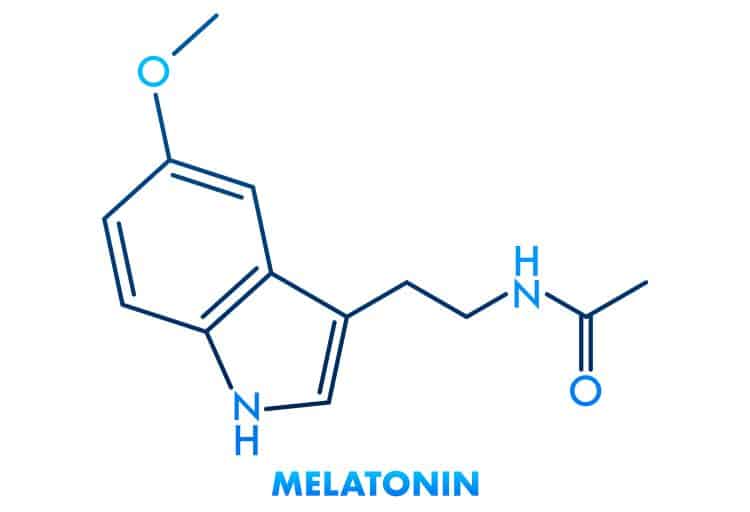
Melatonin is a naturally produced hormone. Your body makes more during the evening and less during the day. This is called your circadian rhythm and helps regulate your natural sleep/wake cycle. Melatonin tells your body it’s time to sleep [5]. Stress and bright lights can lower your melatonin levels, making sleep harder to come by.
Melatonin supplements increase your melatonin levels and have been shown to have a positive effect on sleep. They can help you go to sleep sooner and stay asleep longer.
Most users experience better sleep using a dose of 3-10 milligrams per night, taken 15-30 minutes before bedtime. Melatonin supplements are safe for adults and are suitable for short and long-term use [6].
2. Magnesium
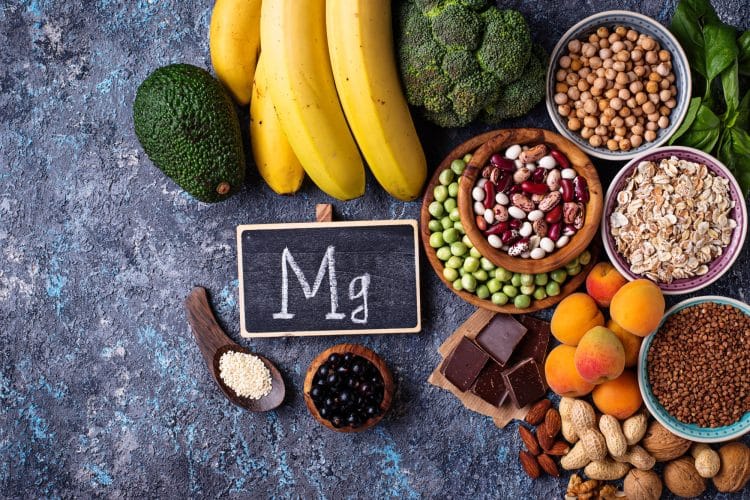
Magnesium is a mineral involved in hundreds of bodily processes, including heart and brain health. However, it also promotes mental and physical relaxation, creating a better environment for a good night’s sleep [7].
Low magnesium may be one of the reasons you find it hard to go to sleep, and supplemental magnesium can help get your levels back to normal.
One way to increase your magnesium intake is to use the supplement ZMA. ZMA is not just good for improving sleep quality; it’s also reported to increase testosterone production, increasing muscle gain, and burning fat in the process.
Read more about ZMA in our detailed guide.
3. Lavender
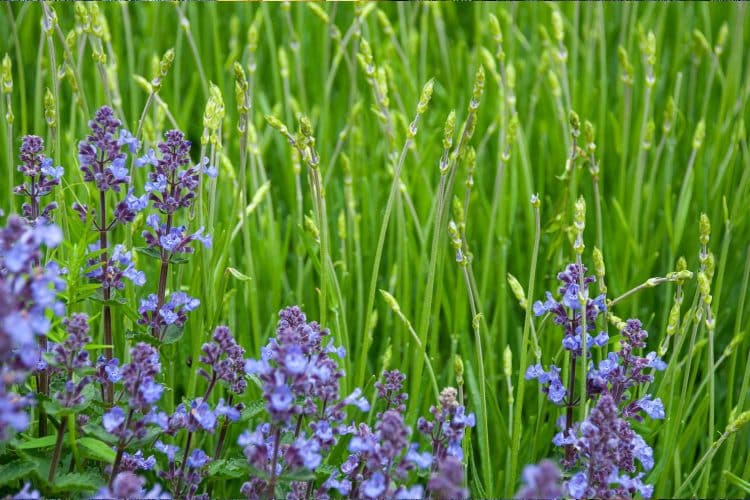
Not all sleep aid supplements are meant to be taken orally. Inhaling lavender’s distinct fragrance has been shown to promote relaxation and enhance sleep [8].
There are a few ways to use lavender, including lavender aromatherapy oil, dried lavender flowers, and lavender sprays. Oral intake of lavender is linked to stomach pain and is best avoided. However, inhaled lavender is deemed very safe and effective for improving sleep quality.
4. Passionflower
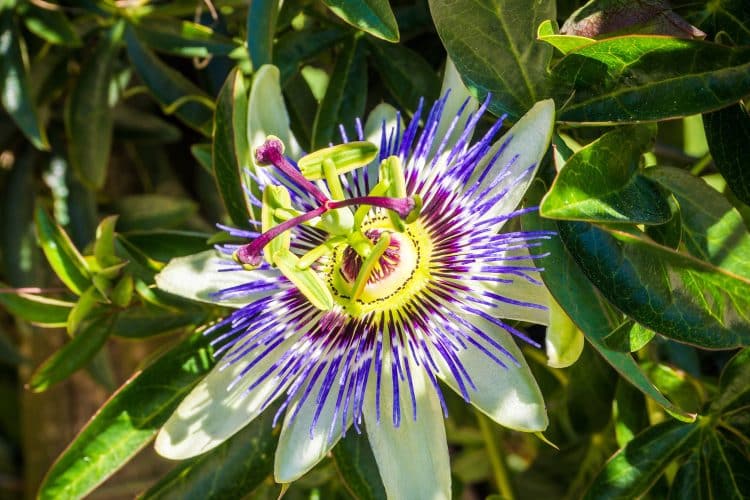
Passiflora Incarnata Linnaeus or passionflower is a popular herbal remedy for insomnia and is linked to improvements in sleep quality and duration. Native to North America, passionflower is also cultivated in Europe, Asia, Africa, and Australia.
The best way to use passionflower as a sleep aid is in herbal tea. In studies, users of passionflower fell asleep faster, stayed asleep longer, and woke up feeling more refreshed [9].
5. Glycine
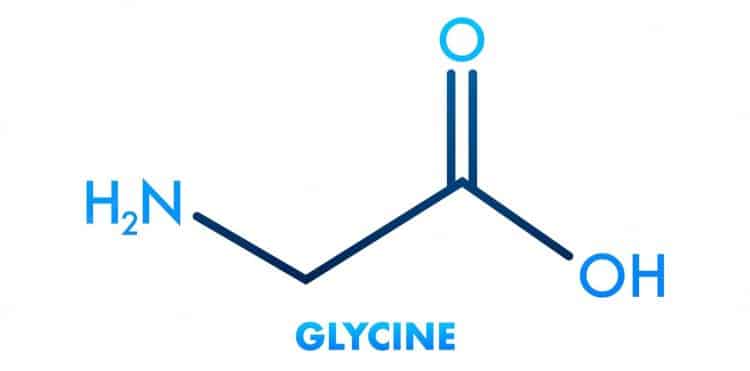
Glycine is a naturally occurring amino acid found in abundance in meat, eggs, fish, poultry, beans, spinach, kale, cabbage, bananas, and kiwi fruit. Taking a glycine supplement or eating glycine-rich foods may help you sleep by lowering your core temperature, creating a better sleep environment [10].
In studies, glycine users not only reported falling asleep sooner and staying asleep longer, but also an increase in daytime energy levels, better concentration, and a better overall mood.
For best results, take 0.8 grams of glycine per kilogram of body weight; however, some users report getting good results from as little as three grams taken 30-minutes before bedtime.
6. Tryptophan and 5-HTP
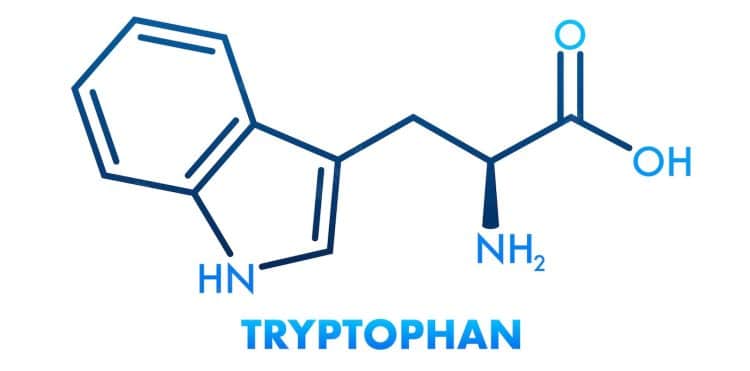
Like glycine, tryptophan is another amino acid. It’s a precursor of serotonin, which, along with melatonin, helps regulate your circadian rhythm [11]. Turkey is high in tryptophan, which is why it has a reputation for causing drowsiness.
Taking as little as one gram 30-minutes before bedtime may help you fall asleep sooner and improve overall sleep duration and quality.
5-hydroxytryptophan (5-HTP) is a chemical derivative of tryptophan and is a popular natural sleep enhancer. Many 5-HTP supplements also contain melatonin. However, 5-HTP is only recommended for short-term use, with 3-6 weeks being best.
7. Valerian Root
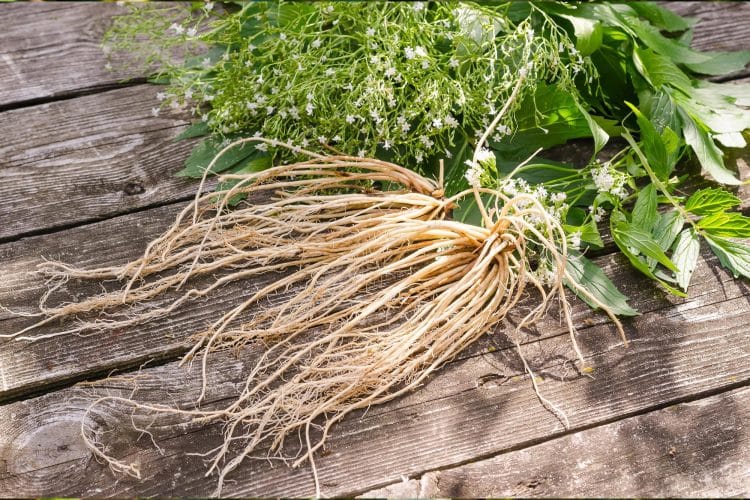
Valerian root is an herb native to Asia and Europe. It’s commonly used as a natural treatment for anxiety, depression, and menopause. However, valerian root is also one of the most popular and widely used natural sleep aids in the United States and Europe [12]. Valerian root can be made into an herbal tea and is also available in capsules.
8. Ginkgo Biloba
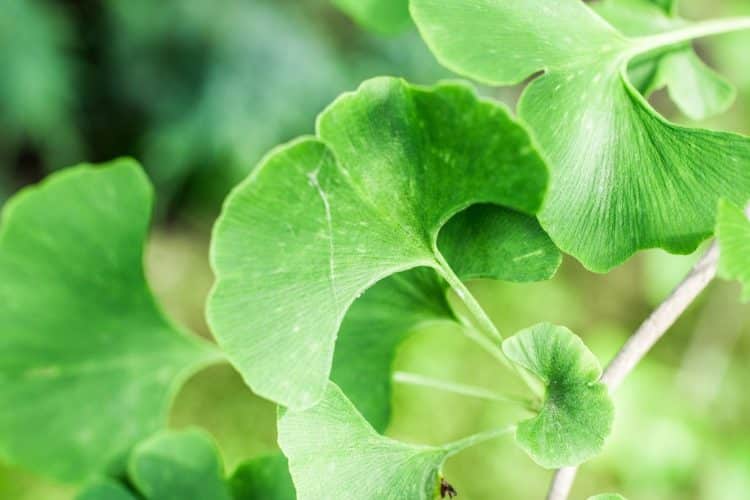
Gingko Biloba, traditionally known as maidenhair, is a native Chinese herb. Valued for being a powerful stress-busting adaptogen and antioxidant, studies suggest that taking 200-250mg of Ginkgo Biloba before bedtime may help you sleep longer and deeper [13]. Using Gingko Biloba has an especially notable effect on the duration of REM (rapid eye movement) sleep, which is the most restorative part of the sleep cycle.
9. L-Theanine
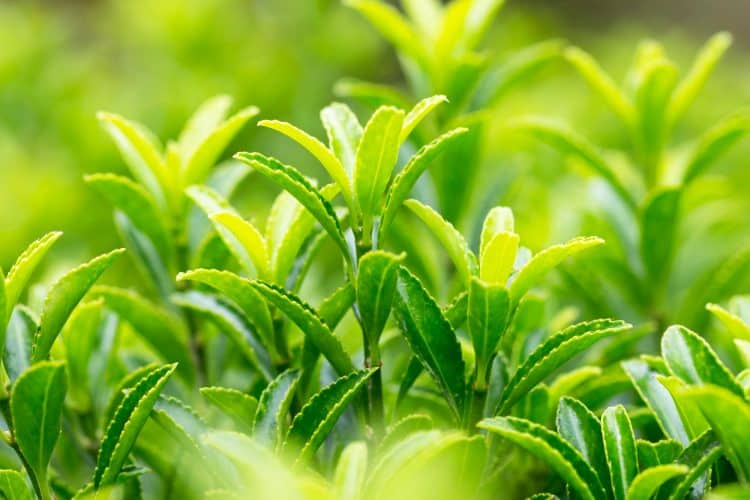
L-theanine is a common ingredient in pre-workouts, as it helps take the edge off the anxiety-inducing effects of the large caffeine dose that most pre-workouts contain. However, taken on its own, amino acid L-theanine aids relaxation and makes it easier to fall asleep [14]. L-theanine is a valuable supplement if stress is why you are unable to sleep and is especially effective when stacked with GABA.
10. Chamomile
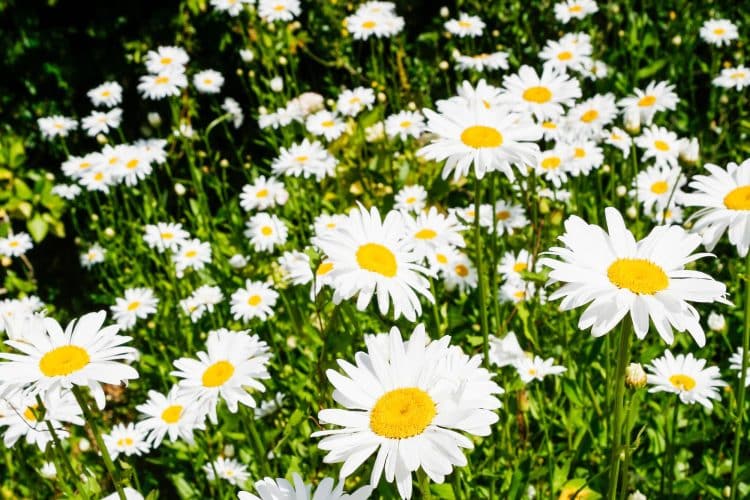
Chamomile is a calming herb that promotes relaxation and sleep [15]. It can be used in several ways, including herbal tea, a topical tincture, an essential oil, or capsule form. In addition to being a traditional sleep aid, chamomile is also good for digestion, relieves headaches, and relaxes tense muscles.
Other Sleep-Boosting Strategies
While these supplements may all help you fall asleep more quickly and stay asleep for longer, there are a few other things you can do to prime your body for better sleep:
- Dim the lights an hour or two before bedtime – this naturally increases melatonin production and tells your body it’s time for sleep. In contrast, bright lights suppress melatonin and promote wakefulness.
- Eat some carbs – providing your diet allows it, eating carbs an hour or two before bedtime increases serotonin and readies your body for sleep. Good choices include wholegrain crackers, cereal, fruit, and dairy foods, such as plain Greek yogurt.
- Lay off the caffeine – caffeine can stop you from sleeping many hours after ingestion. Make sure your body is caffeine-free by putting a curfew in place and not drinking coffee, black or green tea, cola, caffeinated sports drinks, or pre-workouts during the afternoon. Also, be aware that some cold medicines also contain caffeine, which is good for your energy but bad for sleep.
- Avoid intense late-night exercise – a tiring workout can leave your nervous system revved up to the max, stopping you from sleeping. Gentle exercise, such as a walk or stretching, is a much better nighttime workout choice than HIIT or bodybuilding training.
- Speak to your doctor – while everyone has the occasional sleepless night, long-term sleeplessness and insomnia could be a sign of an underlying medical condition. If the strategies in this article don’t help whisk you off to sleepy town, tell your doctor.
Better Sleep – Wrapping Up
Getting enough sleep is crucial for your muscle-building and fat-burning success. Even occasional sleep deprivation can have on your mental and physical performance. Some causes of sleep deprivation are self-inflicted. If you stay up all night playing Gears of War or watching TV, you are your own worst sleep enemy.
However, some people are just bad sleepers, and that’s where the ten best natural sleep aids come in.
Using a sleep aid can help break your cycle of sleeplessness. After a few weeks or months of regular sleep, you may even find that you no longer need to use a sleep aid. Getting a good night’s sleep is a skill and something that gets easier with practice.
Remember, though, not being able to sleep could also be a sign of an underlying issue. So, if it’s been weeks since you last slept through the night, it may be time to speak to your doctor.
References:
- Sleep and muscle recovery: endocrinological and molecular basis for a new and promising hypothesis – PubMed. (2011, August 1). PubMed. Retrieved December 15, 2022
- Chaput, J. P., Després, J. P., Bouchard, C., & Tremblay, A. (n.d.). The Association Between Sleep Duration and Weight Gain in Adults: A 6-Year Prospective Study from the Quebec Family Study. PubMed Central (PMC). Retrieved December 15, 2022
- Colten, H. R., Altevogt, B. M., & Medicine (US) Committee on Sleep Medicine and Research, I. O. (2006, January 1). Extent and Health Consequences of Chronic Sleep Loss and Sleep Disorders – Sleep Disorders and Sleep Deprivation – NCBI Bookshelf. Extent and Health Consequences of Chronic Sleep Loss and Sleep Disorders – Sleep Disorders and Sleep Deprivation – NCBI Bookshelf.
- Chaput, J. P., Dutil, C., & Sampasa-Kanyinga, H. (2018, November 27). Sleeping hours: what is the ideal number and how does age impact this? PubMed Central (PMC).
- Zisapel, N. (2018, January 15). New perspectives on the role of melatonin in human sleep, circadian rhythms and their regulation. PubMed Central (PMC). Retrieved December 15, 2022
- The Safety of Melatonin in Humans – PubMed. (2016, March 1). PubMed. Retrieved December 15, 2022
- American Physiological Society. (n.d.). American Physiological Society.
- Lillehei, A. S., Halcón, L. L., Savik, K., & Reis, R. (n.d.). Effect of Inhaled Lavender and Sleep Hygiene on Self-Reported Sleep Issues: A Randomized Controlled Trial. PubMed Central (PMC).
- Effects of Passiflora incarnata Linnaeus on polysomnographic sleep parameters in subjects with insomnia disorder: a double-blind randomized placebo-controlled study – PubMed. (2020, January 1). PubMed.
- Kawai, N., Sakai, N., Okuro, M., Karakawa, S., Tsuneyoshi, Y., Kawasaki, N., Takeda, T., Bannai, M., & Nishino, S. (2015, January 14). The Sleep-Promoting and Hypothermic Effects of Glycine are Mediated by NMDA Receptors in the Suprachiasmatic Nucleus. PubMed Central (PMC).
- Effects of tryptophan loading on human cognition, mood, and sleep – PubMed. (2010, March 1). PubMed.
- Bent, S., Padula, A., Moore, D., Patterson, M., & Mehling, W. (n.d.). Valerian for Sleep: A Systematic Review and Meta-Analysis. PubMed Central (PMC).
- The effect of Li 1370, extract of Ginkgo biloba, on REM sleep in humans – PubMed. (2001, July 1). PubMed.
- Kim, S., Jo, K., Hong, K. B., Han, S. H., & Suh, H. J. (2019, February 1). GABA and l-theanine mixture decreases sleep latency and improves NREM sleep. PubMed Central (PMC).
- Effects of an intervention with drinking chamomile tea on sleep quality and depression in sleep disturbed postnatal women: a randomized controlled trial – PubMed. (2016, February 1). PubMed.


